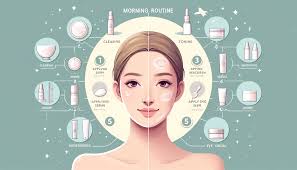Protecting the skin from environmental factors
Protecting the skin from environmental factors is one of the basic principles for having healthy and young skin. Environmental factors such as sunlight, air pollution, temperature changes, wind, and low humidity can damage the skin and cause problems such as dryness, premature aging, and even skin diseases. In the following, we discuss effective methods to protect the skin against these factors:
1. Protection from sunlight
Use of sunscreen cream:
Use sunscreens with an SPF of at least 30 that protect the skin from UVA and UVB rays.
• Renewal of sunscreen cream:
Reapply sunscreen every 2 hours, especially outdoors or after sweating and washing.
Wearing the right clothes:
Wearing a brimmed hat, sunglasses, and protective clothing against the sun will help reduce skin exposure to harmful rays.
2. Dealing with air pollution
• Daily cleaning:
Air pollution causes the accumulation of toxins and free radicals on the skin. Washing the face with mild and appropriate detergents at the end of the day removes impurities.
Use of antioxidants:
Products containing vitamin C, E and niacinamide can neutralize free radicals caused by pollution and protect the skin.
3. Maintaining skin moisture
Using moisturizers:
In dry environments or with temperature changes, moisturizers strengthen the skin’s protective barrier and prevent it from drying out.
• Drinking enough water:
Adequate water keeps the body hydrated and helps to keep the skin fresh and flexible.
• Use of fumigation device:
In dry environments, the humidifier can increase air humidity and prevent skin dryness.
4. Protection against wind and cold
Using protective creams:
Thicker creams with more oily ingredients can strengthen the skin’s defense barrier against wind and cold.
Covering the skin:
On cold and windy days, use scarves, gloves, and warm clothes to protect your face and hands.
5. Reducing the effect of low humidity and heat
• Protection against heat:
In hot environments, use hydrating and light sprays to reduce skin heat.
Using products containing hyaluronic acid:
This material helps to maintain the natural moisture of the skin and is very effective in conditions with low humidity.
6. Proper skin nutrition
• Consumption of foods containing antioxidants:
Fresh fruits and vegetables such as oranges, kiwis, spinach and tomatoes help maintain healthy skin against environmental damage.
• Healthy fats:
Consuming healthy fats such as omega-3 in fish and brains helps strengthen the skin’s defense barrier.
7. Avoiding harmful habits
• Smoking and drinking alcohol:
These habits weaken the skin’s natural barrier and cause wrinkles and dry skin.
Using inappropriate products:
Avoid products with strong and irritating chemicals that may make the skin more sensitive.
8. See a dermatologist
• Regular examination:
To identify skin problems caused by environmental factors, see a dermatologist.
Professional treatments:
Professional treatments such as therapeutic masks or deep hydration can reduce the damaging effect of environmental factors.

